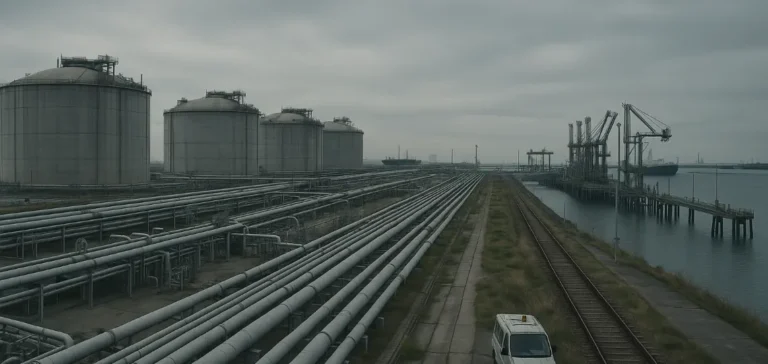According to a recent analysis by international think tank Ember, natural gas demand within the European Union (EU) is expected to significantly decrease over the next five years. Based on updated national plans from member states, this projection anticipates a 7% drop in total gas consumption, from 326 billion cubic metres (bcm) in 2023 to approximately 302 bcm by 2030. This decrease is part of a broader trend: between 2021 and 2023, gas consumption already fell by 19%, dropping from 404 bcm to 326 bcm. Therefore, new investments in this sector could, according to Ember, become unused assets, known as “stranded assets”.
Gas capacities in the face of declining demand
Ember’s report highlights the contrast between these declining demand forecasts and the anticipated increase in liquefied natural gas (LNG) import capacities, which could grow by 54% by 2030. Such an increase would create a significant surplus on the European market, thereby heightening financial risk for the companies involved. Ember relies on recently updated objectives by EU member states in their National Energy and Climate Plans (NECP), key documents guiding European energy and climate policies.
Projections of declining gas demand primarily result from intensified electrification of energy use, coupled with strong expansion in renewable energy production capacities. Ember’s data shows that member states aim to double their total wind and solar capacity within five years. Consequently, renewable energy could account for approximately 66% of electricity produced in the EU by 2030, significantly higher than its current share.
Increasing electrification and sectoral implications
Moreover, electrification of final energy consumption is also expected to intensify, increasing from 23% currently to 30% by the end of the decade. This notable progression is supported by the growing use of electric technologies, particularly in residential and commercial heating sectors, where heat pumps are gradually replacing fossil fuel-powered appliances. This shift indicates a marked transition towards increased use of clean electricity to meet European energy needs.
Detailed data from Ember’s report, accessible via their interactive “Live EU NECP Tracker” tool, provides precise national comparisons of various energy objectives set by EU member states. These elements provide concerned economic stakeholders with a comprehensive and updated overview of European energy trends.






















